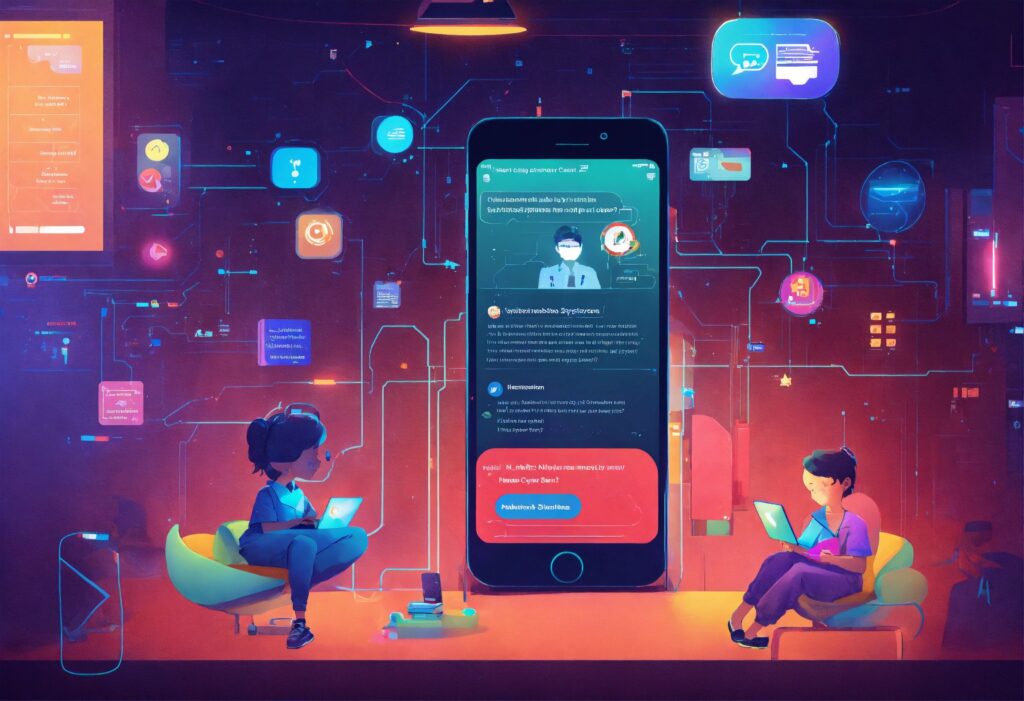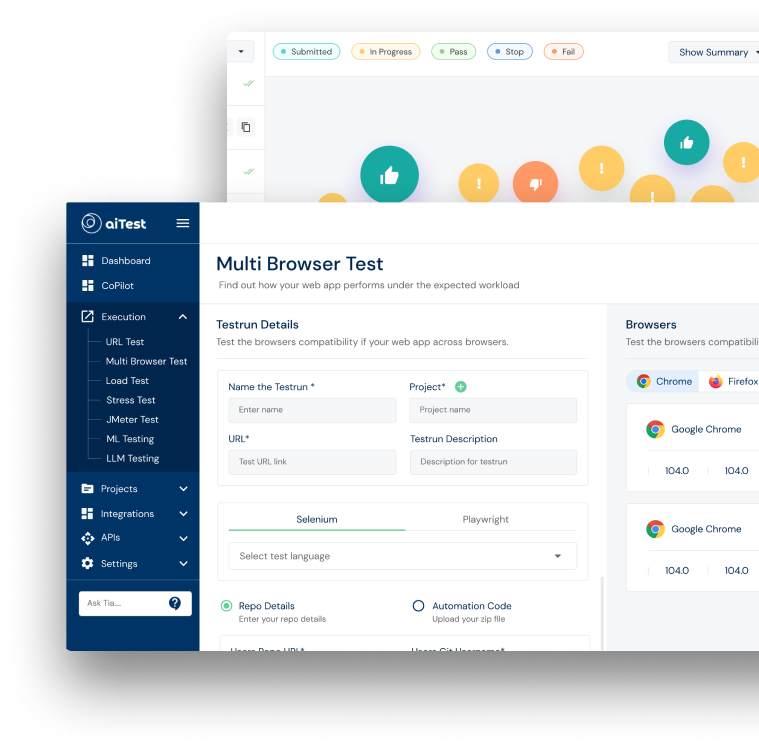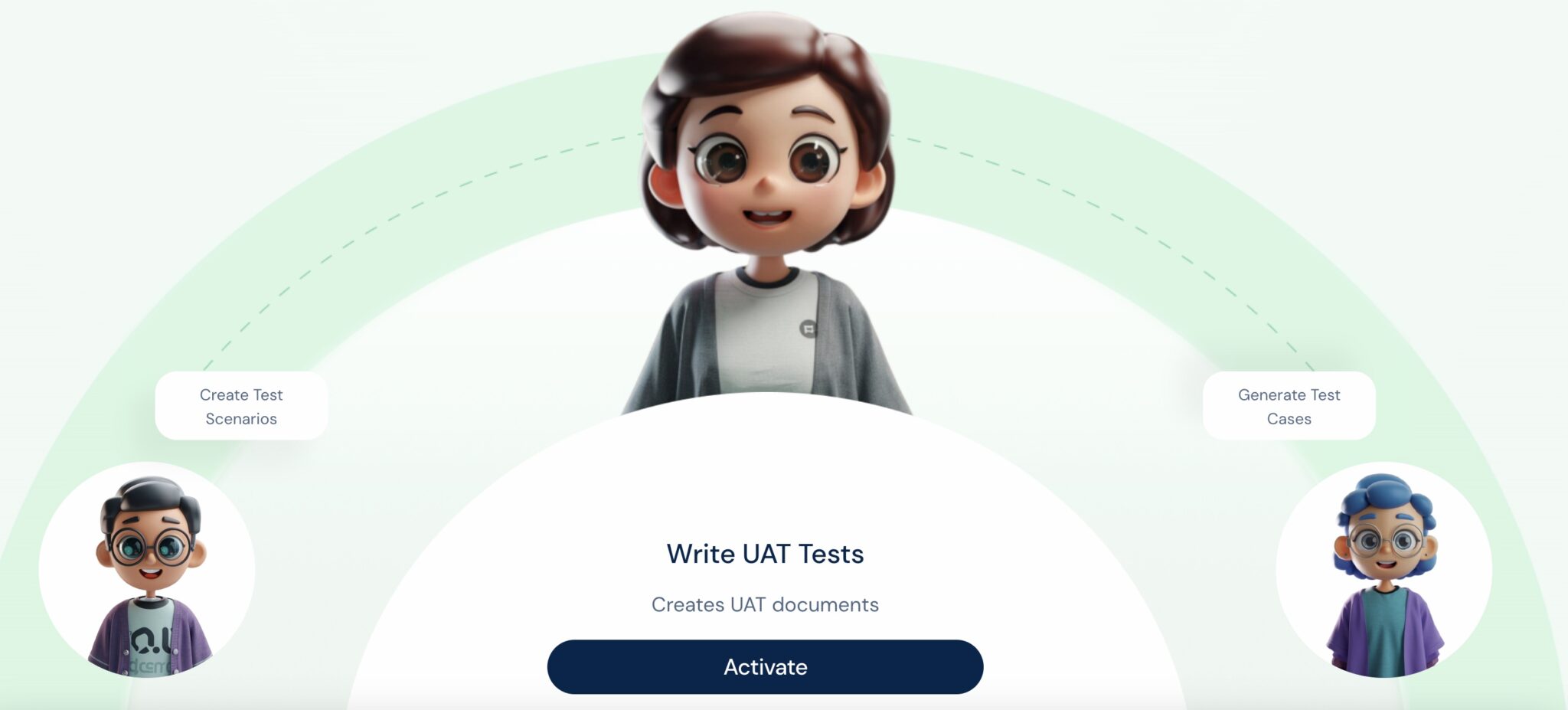Introduction
- The mobile application domain is a melee of perpetual change and diversity.
- As device landscapes evolve and user expectations soar, mobile app testing must rise to the challenge.
- This comprehensive blog post delves into the nuances of current mobile app testing trends, offering rich insights to developers, testers, and business stakeholders vested in crafting exceptional digital experiences.
Mastering Test Automation for Mobile Apps:
- No longer just a complement to manual testing, automation has become the backbone of effective mobile app quality assurance.
- As apps become multitiered and sophisticated, successful testing strategies employ tools like Appium for cross-platform automation and Espresso and XCUITest for native Android and iOS testing, respectively.
- These tools enable QA teams to execute exhaustive test suites with precision and speed, detecting issues that could derail user experience (UX).

Leveraging Real Devices and Emulators:
- To ensure comprehensive coverage, the best practice is to use a mix of real device testing for high fidelity results and emulators/simulators for scalability and quick smoke testing.
- This combination allows for cost-effective testing that doesn’t compromise on the real-world validity of results.
Scaling Performance Testing Across Devices:
- With a myriad of devices in the wild, replicating performance across the spectrum is a Herculean task.
- Performance testing has to factor in varied device capabilities, screen resolutions, and battery life, in addition to network speed and stability scenarios, to ensure the application stands up to the demands of actual usage.
- Mobile apps must be stress-tested to sustain not just peak user loads but also to handle the unexpected quirks of mobile computing like interruptions from calls or notifications.

The Emergence of AI in Mobile Testing:
- Artificial intelligence (AI) is revolutionizing mobile app testing by offering predictive analysis, smart anomaly detection, and intelligent test generation.
- AI-powered tools can pore over vast data from usage patterns to detect potential problem areas and optimize test cases — amplifying the effectiveness of both automation and manual testing efforts.
- By learning from historical data, AI can guide testers on what areas might require more rigorous testing based on past defect trends.
Elevating Mobile App Security:
- Cybersecurity concerns bring with them the non-negotiable need for meticulous security testing.
- Consideration for secure coding practices, data encryption, and robust authentication mechanisms are just the tip of the iceberg.
- Security testing must encompass rigorous vulnerability scanning, and penetration testing, as well as compliance with data protection standards like GDPR and CCPA to safeguard user information.
Expanding Horizons with AR and VR Testing:
- Augmented Reality (AR) and Virtual Reality (VR) apps open a Pandora’s box with their unique interactions and immersive experiences.
- Testing for AR and VR must account not just for usability and functionality but also for maintaining immersion, ensuring proper tracking, and optimizing performance to prevent discomfort such as motion sickness.
- Scenario-based testing becomes critical as the line between physical and digital interactions blurs.
Pioneering Usability and User Experience (UX) Testing:
- UX testing transcends traditional UI evaluation. It’s about understanding the human behind the device — their behaviors, preferences, and pain points.
- Methods like user journey mapping, A/B testing, and beta testing feedback loops are instrumental in crafting an app interface and experience that resonates well with the target audience.
Inclusivity Through Accessibility Testing:
- Accessibility isn’t an afterthought; it’s a signpost of modern app development ethics.
- Accessibility testing isn’t just about compliance; it’s about ensuring that apps deliver a seamless experience to users with varying abilities — an endeavor that broadens market reach and upholds corporate social responsibility.
- Tools and guidelines like WCAG help drive the initiative for an inclusive digital world.
Ensuring Consistency with Cross-Browser and Cross-Platform Testing:
- The kaleidoscope of browsers and operating systems means that cross-compatibility testing is mission-critical.
- Ensuring a consistent app experience irrespective of user preferences for browsers or devices is not optional but a user expectation.
- Test strategies here include real-world device labs and cloud-based testing platforms which offer vast combinations for thorough vetting.

Continuous Testing in Agile and DevOps:
- In the era of Agile and DevOps, continuous testing aligns with the ideal of build fast, fail fast, improve fast.
- By embedding automated testing within CI/CD pipelines, teams are able to catch and address defects in real time, shortening feedback loops and reinforcing the end-to-end quality of the app lifecycle.
The Rise of Cloud-Based Testing Platforms:
- Cloud-Based Testing offers the virtue of scalability with access to an exhaustive pool of virtual testing environments.
- Services like AWS Device Farm and Sauce Labs provide an arsenal of real and virtual environments on-demand, ensuring apps are battle-tested against the broad fluctuation of user scenarios.
Conclusion:
- In an arena where adaptability is key, mobile app testing professionals must stay agile and informed to counteract the emergent challenges and opportunities.
- The trends highlighted reflect the collective direction toward smarter, faster, and more user-centric testing practices that bolster the quality and acceptance of mobile apps.
- By proactively integrating these trends, QA teams can offer apps that not only function flawlessly but delight users and stand strong against the tests of time and competition.
aiTest: A Closer Look
aiTest an all-in-one testing platform. This platform is designed to conduct comprehensive testing on your applications concurrently. It supports cross-browser and browser version testing, as well as functional and performance tests integrated with Analytics. Additionally, the platform incorporates automation features, including an LLM for effortless generation and testing of machine learning models and generating test data for the same. One-stop solution for continuous testing, integrating seamlessly with CI/CD pipelines. With support for multiple languages and specialized testing for AI/ML services, aiTest empowers organizations to speed up their release cycles while ensuring quality and reliability.


